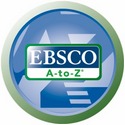Novosti
|
This journal is indexed in Scopus |
|---|
Year 2020 Vol. 28 No 3
ANESTESIOLOGY-REANIMATOLOGY
D.P. MARKEVICH 1, A.V. MAROCHKOV 2
ANESTHESIA AND CORTISOL LEVEL IN PATIENTS WITH TRAUMATIC BRAIN INJURY DURING CRANIOTOMY
Mogilev City Emergency Hospital 1,
Mogilev Regional Hospital 2, Mogilev,
The Republic of Belarus
Objective. To analyze the serum cortisol level during the operation and in the early postoperative period in patients with traumatic brain injury to assess the effectiveness of anesthetic management methods for craniotomy.
Methods. The study included patients (n=111) with the traumatic brain injury. The patients of the 1st group (n=57) underwent to a combination of general anesthesia and cranial soft tissue nerve blockade with low-volumes of local anesthetics during craniotomy.
The patients of the 2nd group (n=58) underwent to general anesthesia. The serum cortisol was examined during the operation and within 10-12 hours after the intervention in 22 (38.6%) patients of the 1st group and 20 (37%) of patients in the 2nd group.
Results. During craniotomy in patients with cranial soft tissue nerve blockade the level of serum cortisol at the main stage of the operation and at the end of the intervention was lower than in patients of the 2nd group. In the 1st group cortisol level at the main stage of the operation was 136.4 (75; 325.4) ng/ml, and in the 2nd group – 258.8 (161.7; 543.5) ng/ml, p=0.024. At the initial stage of the operation in the 1st group cortisol level was 119.6 (47.6; 327.2) ng/ml, and in the 2nd group it was 323.1 (156.9; 673.1) ng/ml, p=0.027. Difference of cortisol levels in patients of both groups 10-12 hours postoperatively have not been detected.
Conclusions. The concentration of blood cortisol was lower in patients with traumatic brain injury who received a combination of general anesthesia and cranial soft tissue nerve blockades than in patients who underwent only general anesthesia. Cranial soft tissue nerve blockades with small volumes of local anesthetics in patients with traumatic brain injury during surgery demonstrated high pain relief.
- Shanko YG, Sidarovich RR, Tanin AL, Naledzka AN, Zurauleu UA. Epidemiology of traumatic brain injury in the Republic of Belarus. Mezhdunar Nevrol Zhurn. 2017;5(91):33-37. http://dx.doi.org/10.22141/2224-0713.5.91.2017.110854 (in Russ.)
- Kusmenkov T, Braunstein M, Schneider HJ, Bidlingmaier M, Prall WC, Flatz W, Boecker W, Bogner V. Initial free cortisol dynamics following blunt multiple trauma and traumatic brain injury: a clinical study. J Int Med Res. 2019 Mar;47(3):1185-94. doi: 10.1177/0300060518819603
- Haldar R, Kaushal A, Gupta D, Srivastava S, Singh PK. Pain following craniotomy: reassessment of the available options. Biomed Res Int. 2015;2015:509164. doi: 10.1155/2015/509164
- Citerio G, Pesenti A, Latini R, Masson S, Barlera S, Gaspari F, Franzosi MG; NeuroMorfeo Study Group. A multicentre, randomised, open-label, controlled trial evaluating equivalence of inhalational and intravenous anaesthesia during elective craniotomy. Eur J Anaesthesiol. 2012 Aug;29(8):371-79. doi: 10.1097/EJA.0b013e32835422db
- Dzyadzko AM, Bolonkin LS, Minov AF, Piskun AB, Chugunova OA, Katin ML, Brukhatsky AA, Fedoruk AM, Shcherba AE. Evaluation of sympathetic blockade under thoracic epidural versus bilateral paravertebral anesthesias during high-traumaticity operations on the upper abdominal organs. Messenger of Anesthesiology and Resuscitation. 2015;12(1):34-40. doi: 10.21292/2078-5658-2015-12-1-34-40 (In Russ.)
- Papangelou A, Radzik BR, Smith T, Gottschalk A. A review of scalp blockade for cranial surgery. J Clin Anesth. 2013 Mar;25(2):150-59. doi: 10.1016/j.jclinane.2012.06.024
- Dimopoulou I, Tsagarakis S. Hypothalamic-pituitary dysfunction in critically ill patients with traumatic and nontraumatic brain injury. Intensive Care Med. 2005 Aug;31(8):1020-28. doi: 10.1007/s00134-005-2689-y
- Klose M, Feldt-Rasmussen U. Hypopituitarism in Traumatic Brain Injury-A Critical Note. J Clin Med. 2015 Jul 14;4(7):1480-97. doi: 10.3390/jcm4071480
- Mirzaie B, Mohajeri-Tehrani MR, Annabestani Z, Shahrzad MK, Mohseni S, Heshmat R, Afshani HR, Meybodi HR, Larijani B. Traumatic brain injury and adrenal insufficiency: morning cortisol and cosyntropin stimulation tests. Arch Med Sci. 2013 Feb 21;9(1):68-73. doi: 10.5114/aoms.2012.30833
- Llompart-Pou JA, Raurich JM, Pérez-Bárcena J, Barceló A, Ibáñez J, Ayestarán JI. Acute Hypothalamic-pituitary-adrenal response in traumatic brain injury with and without extracerebral trauma. Neurocrit Care. 2008;9(2):230-36. doi: 10.1007/s12028-008-9115-6
- Kuvshinov MV, Obryadina AP. The actual issues of comparing the results of quantative immune-enzyme tests. Klin Lab Diagnostika. 2012;(4):32-35. https://cyberleninka.ru/article/n/aktualnye-problemy-sravneniya-rezultatov-kolichestvennyh-immunofermentnyh-testov (In Russ.)
- Canakci E, Unal D, Yildirim T, Yilmaz A. Our scalp block results in craniotomy cases. J Anest & Inten Care Med. 2017;2(4):555592. doi: 10.19080/JAICM.2017.02.555592
- Can BO, Bilgin H. Effects of scalp block with bupivacaine versus levobupivacaine on haemodynamic response to head pinning and comparative efficacies in postoperative analgesia: A randomized controlled trial. J Int Med Res. 2017 Apr;45(2):439-50. doi: 10.1177/0300060516665752
- Ayoub C, Girard F, Boudreault D, Chouinard P, Ruel M, Moumdjian R. A comparison between scalp nerve block and morphine for transitional analgesia after remifentanil-based anesthesia in neurosurgery. Anesth Analg. 2006 Nov;103(5):1237-40. doi: 10.1213/01.ane.0000244319.51957.9f
- Geze S, Yilmaz AA, Tuzuner F. The effect of scalp block and local infiltration on the haemodynamic and stress response to skull-pin placement for craniotomy. Eur J Anaesthesiol. 2009 Apr;26(4):298-303. doi: 10.1097/EJA.0b013e32831aedb2
212030, Republic of Belarus,
Mogilev, Botkin str., 2,
Mogilev City Emergency Hospital,
Anesthesiology and Intensive Care Unit,
tel./fax: +375(222) 22-16-26,
e-mail: snyter1977@gmail.com,
Markevich Denis P.
Markevich Denis P., Head of Anesthesiology and Intensive Care Unit, Mogilev Emergency City Hospital, Mogilev, Republic of Belarus.
http://orcid.org/0000-0002-1117-3877
Marochkov Alexey V., MD, Professor, Anesthesiologist-Resuscitator, Mogilev Regional Hospital, Mogilev, Republic of Belarus.
http://orcid.org/0000-0001-5092-8315




























